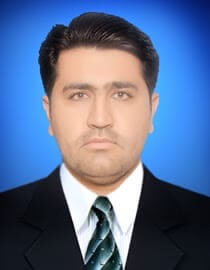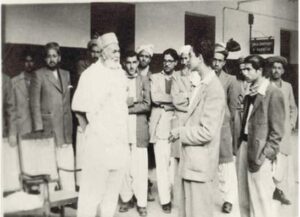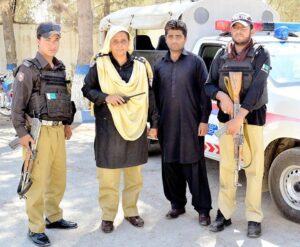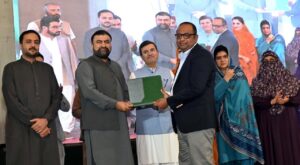Chandni Kakar:
“In a heartbeat, I provide first-aid to injured of blasts”, Firdous, a 27-year-old nurse said. Firdous works at the Trauma Center Civil Hospital Quetta for the last five years. She is one of the frontline health workers providing medical treatment to seriously injured people. Since seriously injured people are brought to the Trauma Center, I, therefore provide them with first aid along with senior health professionals, she said.
Balochistan is under the grip of violence for the last more than two decades. Bomb explosions and targeted killings by the outlawed militant organizations have claimed scores of precious human lives. The worsening law and order situation has far-reaching negative impacts on the population in general and the women segment of society in particular.
“Women suffer psychologically after every terror attack”
“Women suffer psychologically after every terror attack”, Azizullah Khan, a senior faculty member at the physiatry department said. He said most of the women suffer from the post-traumatic disorder (PTDS) after incidents of bomb explosions and targeted killings.
Quetta’s civil hospital has witnessed repeated follow-up bomb explosions. At least 70 people including 56 members of the legal fraternity and lawyer’s leader Baz Muhammad Kakar and two cameramen of private TV channels were killed on August 8, 2016, when a suicide bomber struck the casualty ward of the hospital. Lawyers and health workers and media men had gathered after the killing of a senior lawyer Bilal Kasi Advocate when the suicide bomber targeted the crowd in the hospital.
Hospital nurses also suffered casualties in the attack.
“When we recall that day we get disturbed”, Firdous said
“When we recall that day we get disturbed”, Firdous said. She said all health professionals were extremely concerned about their security after every terror attack in Quetta and other parts of Balochistan.
Human Rights Groups have also demanded of the government to make sure of foolproof security arrangements for all health professionals. “Government has to protect all medical professionals”, Habib Tahir Advocate, the Chief of the Human Rights Commission of Pakistan (HRCP) Balochistan chapter said. He said it was the responsibility of the government to protect health professionals.






